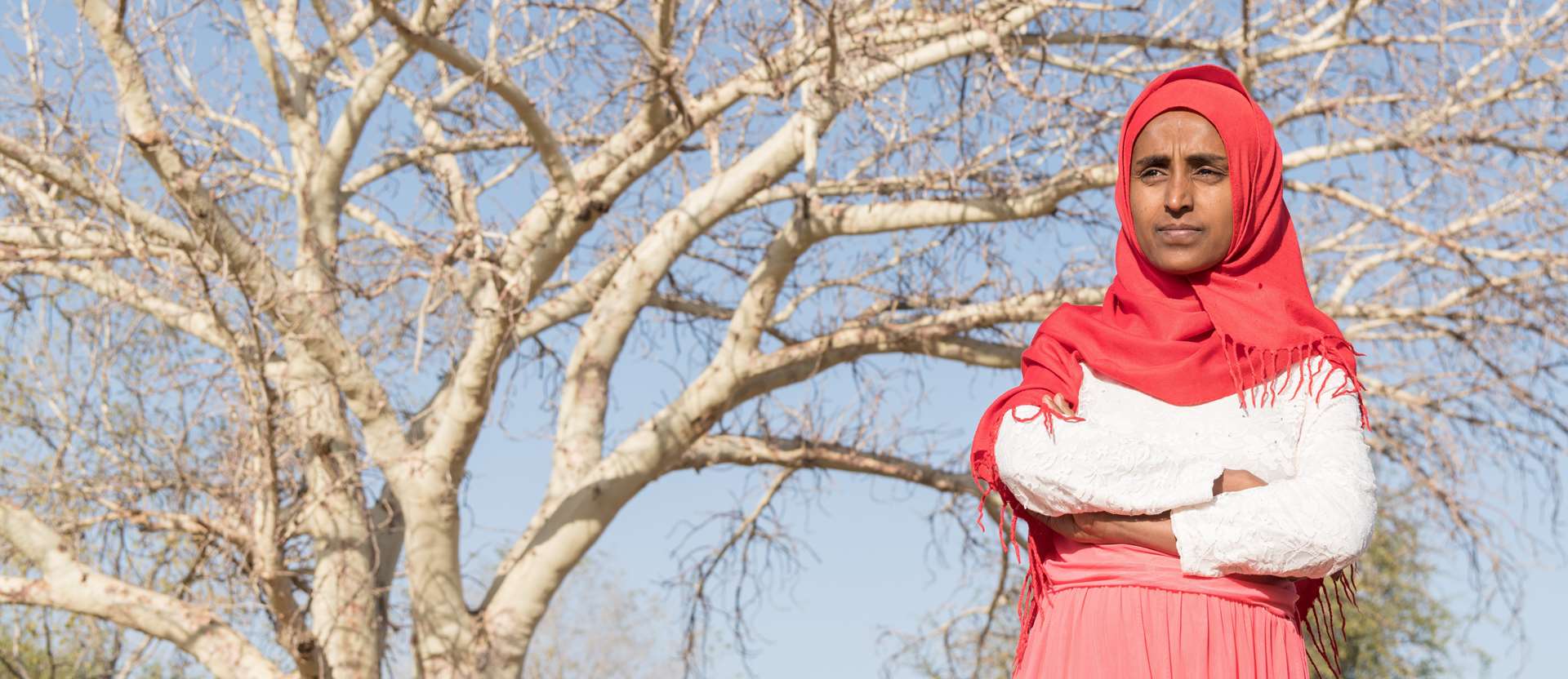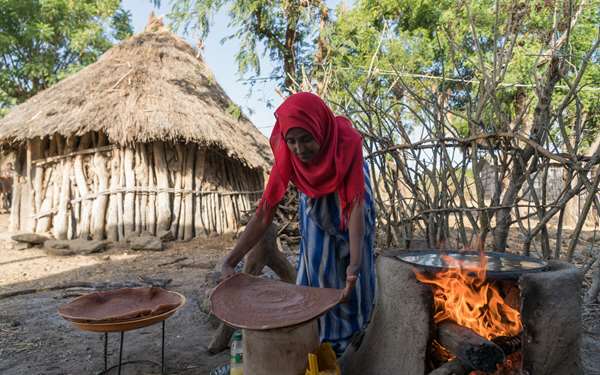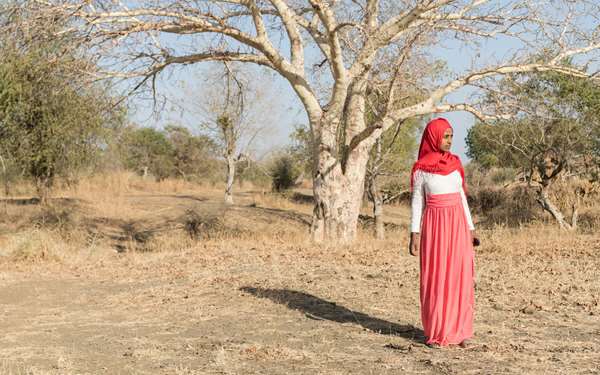
Birtukan Gebeyehu Women of the Great Green Wall
01st March 2023
Meet Birtukan
To celebrate International Women’s day, Tree Aid are sharing stories of some of the women we work with, learning how community-led projects can help make an impact for women’s lives across the Sahel.
Birtukan Gebeyehu is a 26 year old mother of two, from Metema, Ethiopia - "I have two children, a boy and a girl. My daughter is 9 years old and my boy is just 18 months old.”
Speaking to Birtukan, it’s clear how much she values education – asked about whether her own children go to school, she exclaims “Yes, Inshallah (‘god willing’)! There is no way I want to stop them going to school - I have promised myself to support them to reach to the level they want to reach.”
Image: Maheder Haileselassie - A portrait of Birtukan Gebeyhu at her home in Metema woreda, Ethiopia. January 2021
Barriers to learning
Birtukan's passion for her children’s schooling stems from a difficult personal experience as a child – aged nine, her father fell ill, and financial circumstances forced her family into choosing just one daughter to continue with education, whilst Birtukan began a life of work:
“My mother, younger sister and I decided that my sister should continue her education, and I would drop out of school to start a small roadside business with my Mom selling tea, coffee and snacks.”
Though she spoke with pride about her sister’s success, who now works as a nurse, it’s clear that Birtukan carries painful feelings about her own lost opportunity...
“You see what it means to be a woman” – schooling as a path to gender equality:
Birtukan firmly believes that education is an important piece of the puzzle when addressing the “deep-rooted… social, cultural and economic origins” of the “many challenges women face”.
Channelling her feelings about her own lack of education, Birtukan stressed that "girls must have the right to access education. Families think sending their daughters to school is a waste of time… Hence, girls are not encouraged to aim big and far, which has a big implication on their performance at school…"
Image: Maheder Haileselassie - Birtukan Gebeyhu making Injera in Metema woreda, Ethiopia. January 2021


“My self-esteem is very much developed” – taking the lead on a Tree Aid project
We first met Birtukan when she joined Tree Aid’s Future Forest project, to protect the Metema frankincense forest. The forest is in one of the last green belts before the start of the desert, and without action it could be extinct in 20 years due to the impacts of the climate crisis and deforestation.
As a project participant, Birtukan stepped into a management and leadership role, receiving training on ways to protect the forest so that it is around for her community for generations to come. Nowadays, she is leading the forest management project, as the only female executive member and a board member of the union.
Image: Maheder Haileselassie - Birtukan Gebeyhu walking in Metema woreda, Ethiopia. January 2021


Making An Impact: Tackling Community Climate Challenges:
Birtukan also was able to increase her awareness about the climate crisis and the conservation of natural resources. She’s a real champion for trees in her community, describing them as “the beginning and the end”.
“The whole system exists because there are trees, and if they are destroyed it would collapse.”
Thanks to the involvement of women like Birtukan, the project has helped the forest and the community to thrive. In the past, “the forest used to be no one’s property. Anyone could cut a tree, tap frankincense, collect fuelwood or wild honey and allow their animals to graze in it”
Now, there is more environmental protection than ever before and there’s been a sizeable shift towards more sustainable use of the forest.
Image: Maheder Haileselassie - Trees in Metema woreda's frankincense forest, Ethiopia. January 2021
Looking to the future
It was clear that Birtukan has come a long way since family tragedy forced her to leave school, and that finding ways to grow and develop throughout her life despite this fact have been really important to her improving her sense of wellbeing.
Birtukan sees her own story as part of a bigger picture, one which reflects the circumstances of women across the country. Whilst hopeful for the future, Birtukan stressed the importance of local initiatives which can contribute towards transforming the lives of women and girls. She told us “what is happening at a national and regional level is encouraging but there still a lot to be done at the community level.”
Her successes in the Future Forest project show just how much she has been able to achieve since being given an opportunity to thrive and learn.
Image: Maheder Haileselassie - Birtukan Gebeyhu walking in Metema woreda, Ethiopia. January 2021



